Losing motivation to train as you get older? We ask three exceptional veterans for their tips
What does it take mentally to keep striving for peak performance into your 40s, 50s, 60s and beyond?
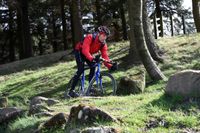
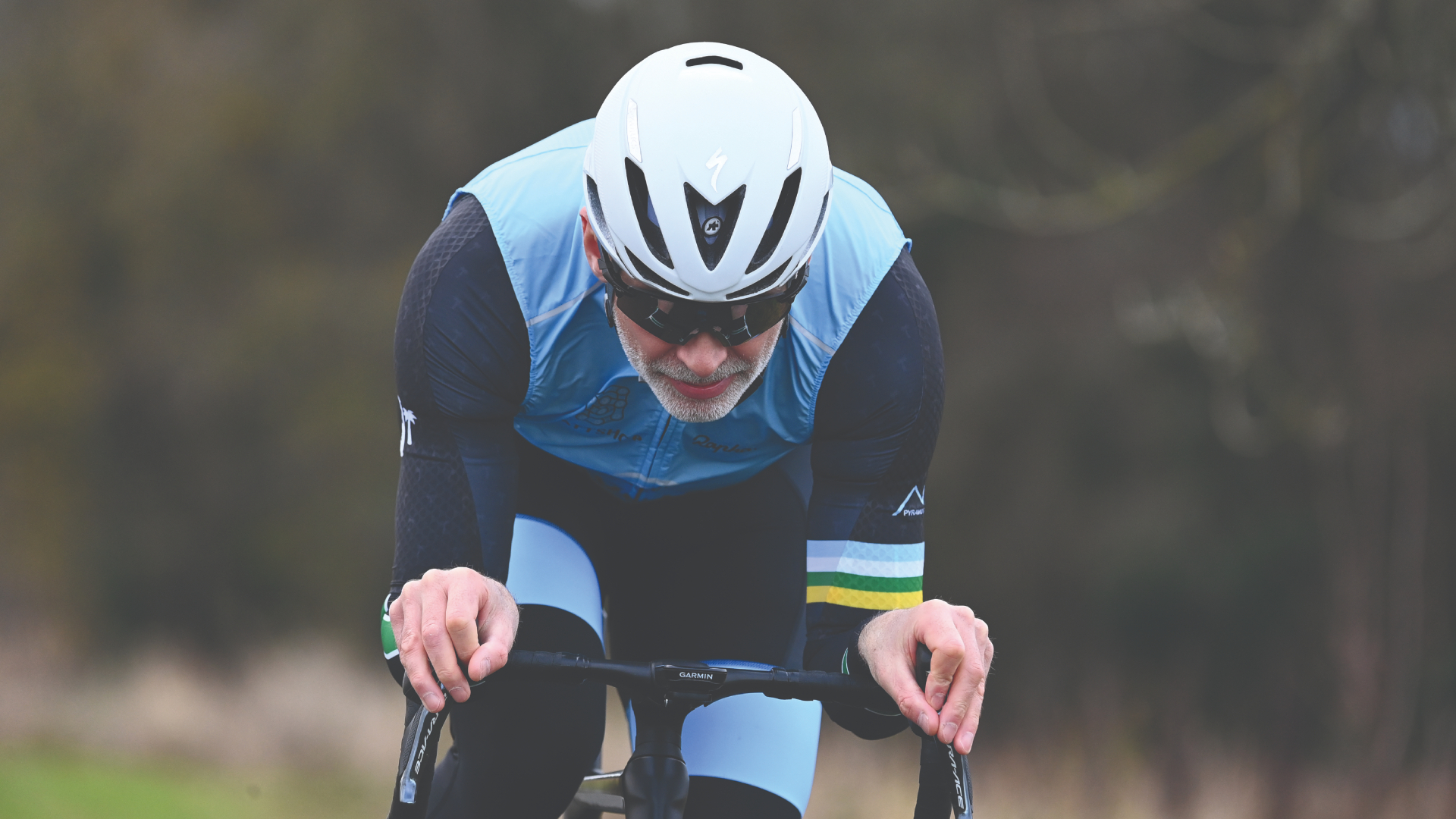
The latest race content, interviews, features, reviews and expert buying guides, direct to your inbox!
You are now subscribed
Your newsletter sign-up was successful
Life is busy, noisy and full of demands, distractions and decisions. It can get so complicated that you feel like you need a map to find our way around and a PA to help schedule your days – which must of course include plentiful cycling. This is where mindset comes in. What exactly do we mean by mindset? It’s the term psychologists use to describe our outlook, philosophy and our values. In other words, mindset is a framework for thinking influenced by life experiences, learning, culture and the various ecosystems we operate in, but it isn’t static throughout life. It needs good influences to keep us motivated, happy and healthy – and it can be even more important as we grow older.
Mindset can change for good and for bad, and be influenced by positive and negative experiences, contact with different people or groups, even by things we read or hear. The upshot is that our mindset can help or hinder us – in every aspect of our lives, including our health, wellbeing and fitness. It’s so powerful that it can make the difference between a successful and unsuccessful fitness programme. Mindset also helps us maintain perspective and fit in training and racing around other commitments so as to benefit our lives and those around us. We spoke to three very successful masters cyclists who are at different points in their cycling journeys, facing different situations, and asked them for some tips on how to nurture a winning mindset.
Richard Oakes - ‘Keep asking why and keep smiling’
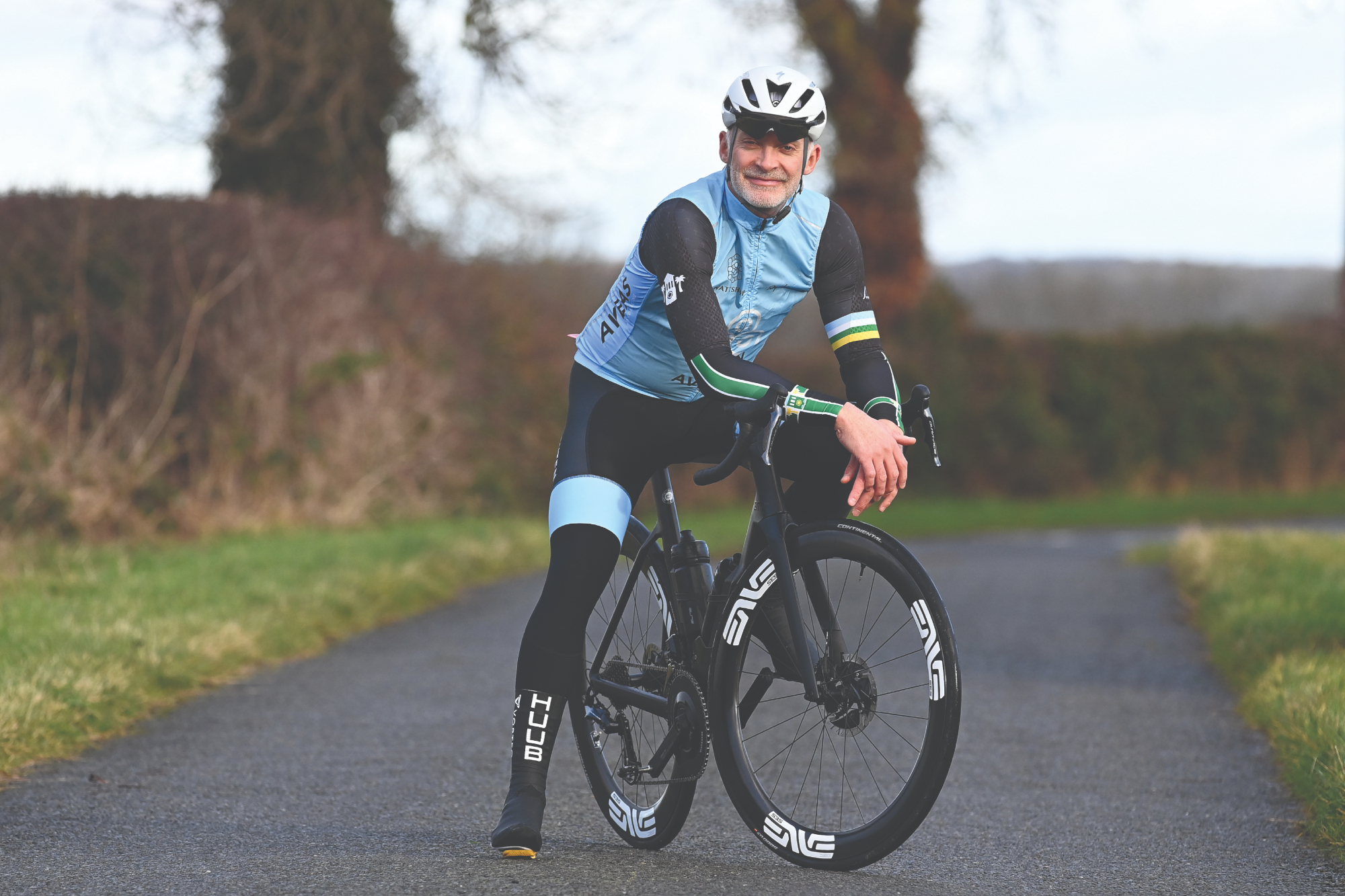
Biggest achievements: Winner of four world titles and holds two world records. PBs include 18:08 for 10 miles and 47:32 for 25 miles (all achieved aged over 50).
Richard Oakes was a very successful junior racer before pursuing a high-flying business career. He continued cycling after creating his own business, the social technology company Ohten Group, helping organisations “turn egosystem into ecosystem”. The super-fast veteran, who lives in Empingham, Rutland, is still working hard – and training hard too. He returned to world championship level competition in 2019 in a personal quest to see how fast he can go. In the course of doing so, he has won multiple national and world titles, set world records, and at the age of 54 is still getting faster.
Oakes applies a lot of what he’s learned in business, adopting a growth mindset in all areas of his life, including his sport. He is very good at cutting away the noise that can confuse and distract. I asked him to share some of the experiences and learnings that he applies to his training. Keep asking why: “Having choices can work against us. For example, on a busy day you might wonder, when can I fit my training session into everything else I have to do? Other questions might be: should I train early or late, indoors or out? But the time spent considering things is wasted. To stop doing it, you need to find your true motivation.
“To do this, I use a process called ‘the five whys’. You start by asking, why is this thing, i.e. cycling, important to me? The reply might be you want to get fit, so you ask, why do I want to get fit? You give a reason, then you ask why that reason is important, and you continue until you have asked ‘why’ five times. What you are doing is drilling down into your reasons to uncover your true motivation for doing something. By the time you have done that five times, you will have discovered the real reason why something is important to you. In the process, you’ll have uncovered your true motivation.
“Once you have true motivation, choice disappears. You do your training, there is no need to think about when or what, no need to waste time agonising over choice. You just do it.”
The latest race content, interviews, features, reviews and expert buying guides, direct to your inbox!
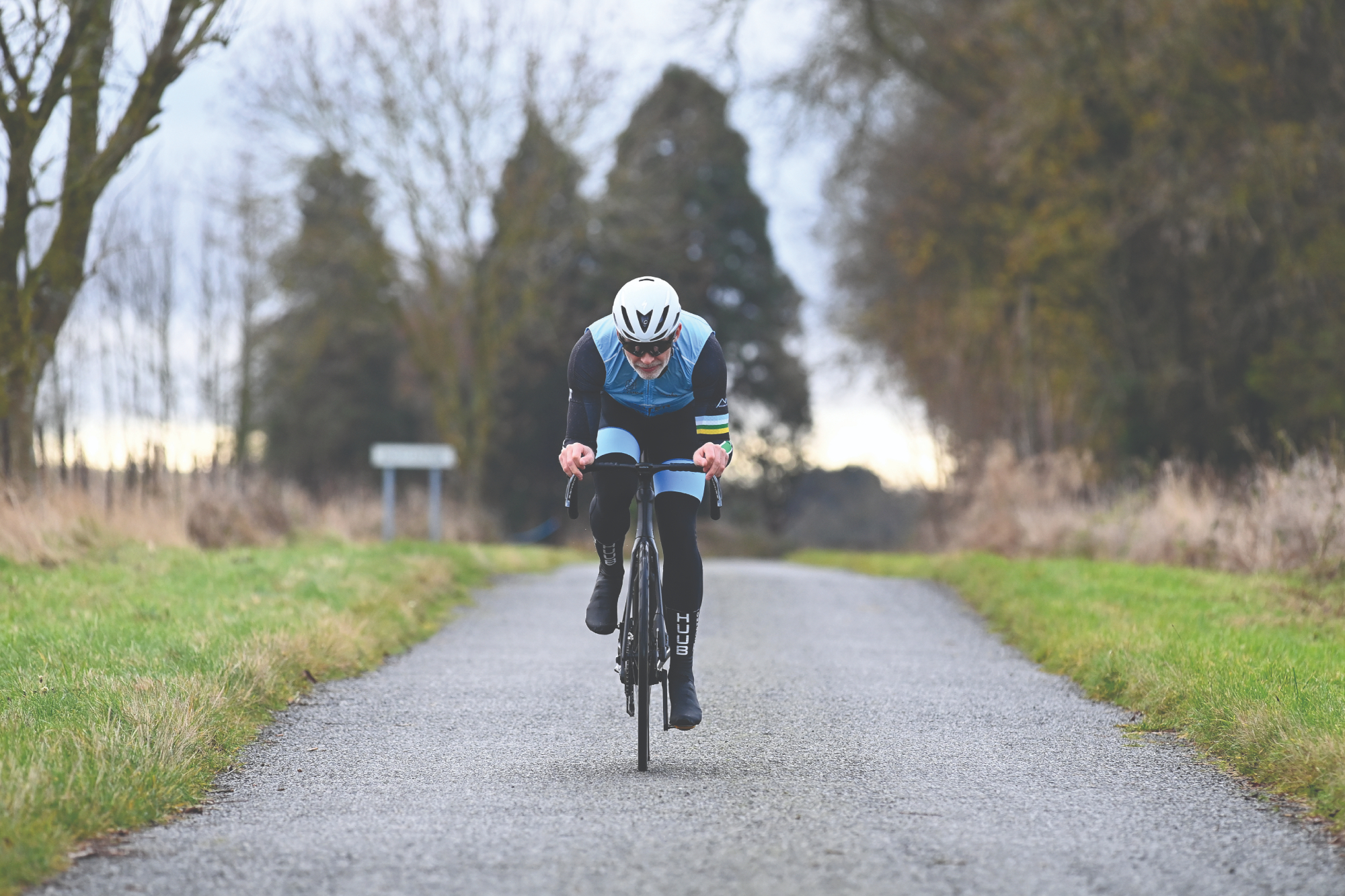
1. Focus on the process: “Take joy and wonder in everything you do, even the simplest things like cleaning your bike. Get absorbed by it; clean it as well as you can. Victory is fleeting. Many Olympic champions relate how they stand on the podium and think, ‘is this it?’ But the journey lasts, and focusing on the process is where you find true joy and satisfaction.”
2. Visualise yourself in the future: “What kind of cyclist do you want to be in five or 10 years’ time? Think about it, visualise it, see yourself and be as graphic as possible with the picture you create. Make it a big clear picture, and as bright as possible. This is your vision for you. As the founder of Body Shop Anita Roddick said: ‘Vision is a thought nobody can have but you.’ Vision creates flow, and when you create your vision of you, just let yourself join that flow. Flow is another thing top sports people talk about. Your vision of your future history sets off a flow, and you just join it.”
3. Write it down: “Write down your vision of you, the cyclist, as you will be in five or 10 years. This is your future diary. I know this probably sounds a bit ‘out there’, but lots of very famous sportspeople do it. Muhammed Ali, for example, used to go into a room, close the curtains and visualise everything about the upcoming fight, his opponent, details of the ring; everything second by second.
“Writing this future diary entry reinforces your vison because writing is very powerful. When you write down any thought, any vision, any answer to a question or a problem – and I mean writing by hand with a pen or pencil on paper – it reinforces the thought, vision or answer. Writing helps to hardwire a thought into us.”
4. Don’t judge yourself harshly: “When you judge a result, you lose focus on the process. Take the example of Tadej Pogačar: there is someone who is in love with the process of being a world class professional cyclist. When he was beaten in last year’s Tour de France, after winning for the previous two at an early age, a reporter asked him if he was disappointed. He said; “No, how can I be disappointed? I have just finished second in the Tour de France.” And he was smiling, obviously thrilled by doing it.
Gemma Mitchell - ‘Accept your lot, do it your own way’
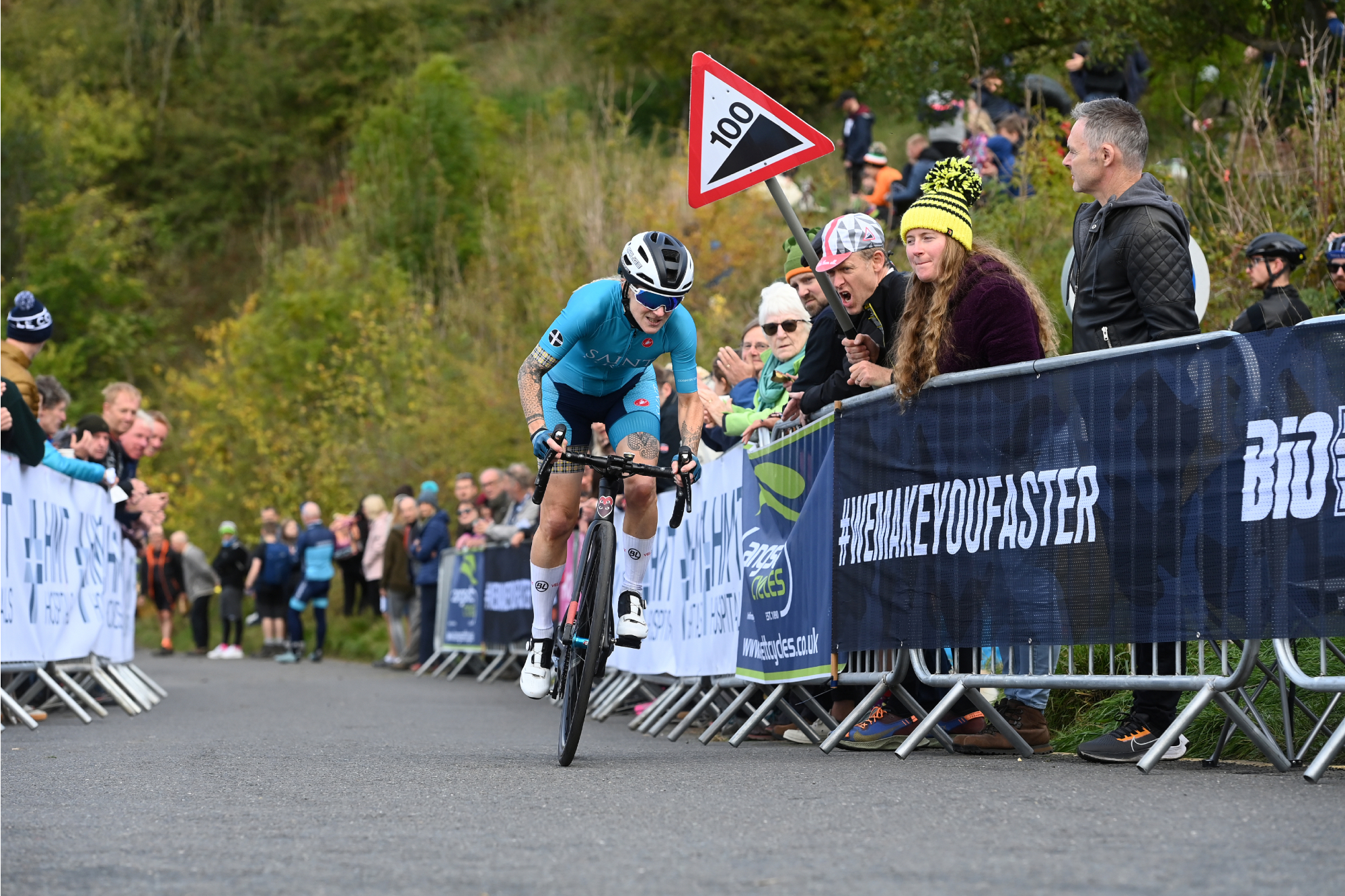
Biggest achievements: Winner of a British masters circuit race title, and several top-three placings in Elite/1/2/3 road races as an over-40 competitor.
Gemma Mitchell is 43 years old, lives in Chorley, Lancashire, works full-time and competes in top-level road racing for the elite squad Team Boompods. This sees her competing with the best riders in the UK, many of whom are full-time pro riders. You might expect Mitchell’s relative seniority, busy schedule and lack of support to be a major disadvantage, but her mindset helps her thrive on her circumstances and experience.
1. `Take pride in doing things differently: “I work for Merlin Cycles, and it is 40-plus hours per week, around which I have to fit in training. I suppose the disadvantage is that I don’t get the rest and recovery time of riders who are supported by teams or by parents, but I definitely do the training I need to do. “I train before work – I’m often on my bike at 5.30am, as well as after work, and I quite like doing it that way. I’m good early in the morning, it’s my best time. In summer it’s wonderful to be outside seeing the sunrise and enjoying the solitude. Getting quality training done early also puts me in a positive state of mind for the rest of the day, because I feel I have achieved something before others have even started, creating an advantage.”
2. Don’t wish for what you can’t have: “You’ve got to play the cards you have been dealt. It’s no good wishing the situation was different. Just do what you can do and look for positives in your situation. I have a coach, Craig Stephenson, and he really helps me. Left to my own devices, I would definitely over-train, so my coach plans rest and recovery for me.”
3. Earn your own momentum: “The feeling I get from my morning training session starts me off on a positive every day, so I feel relaxed because I know I have got some good miles in, which helps me focus on my work. It gives me momentum, and I carry that through the day. “Then my evening session can be relaxed, or I can ride one of the many evening criteriums near where I live, which gives me two quality sessions a day. The upshot is, I know I am doing the training I need to do, and that gives me confidence – knowing it’s not been handed to me, I’ve done it.”
Keith Ainsworth - ‘Give it your all, but know when to stop’
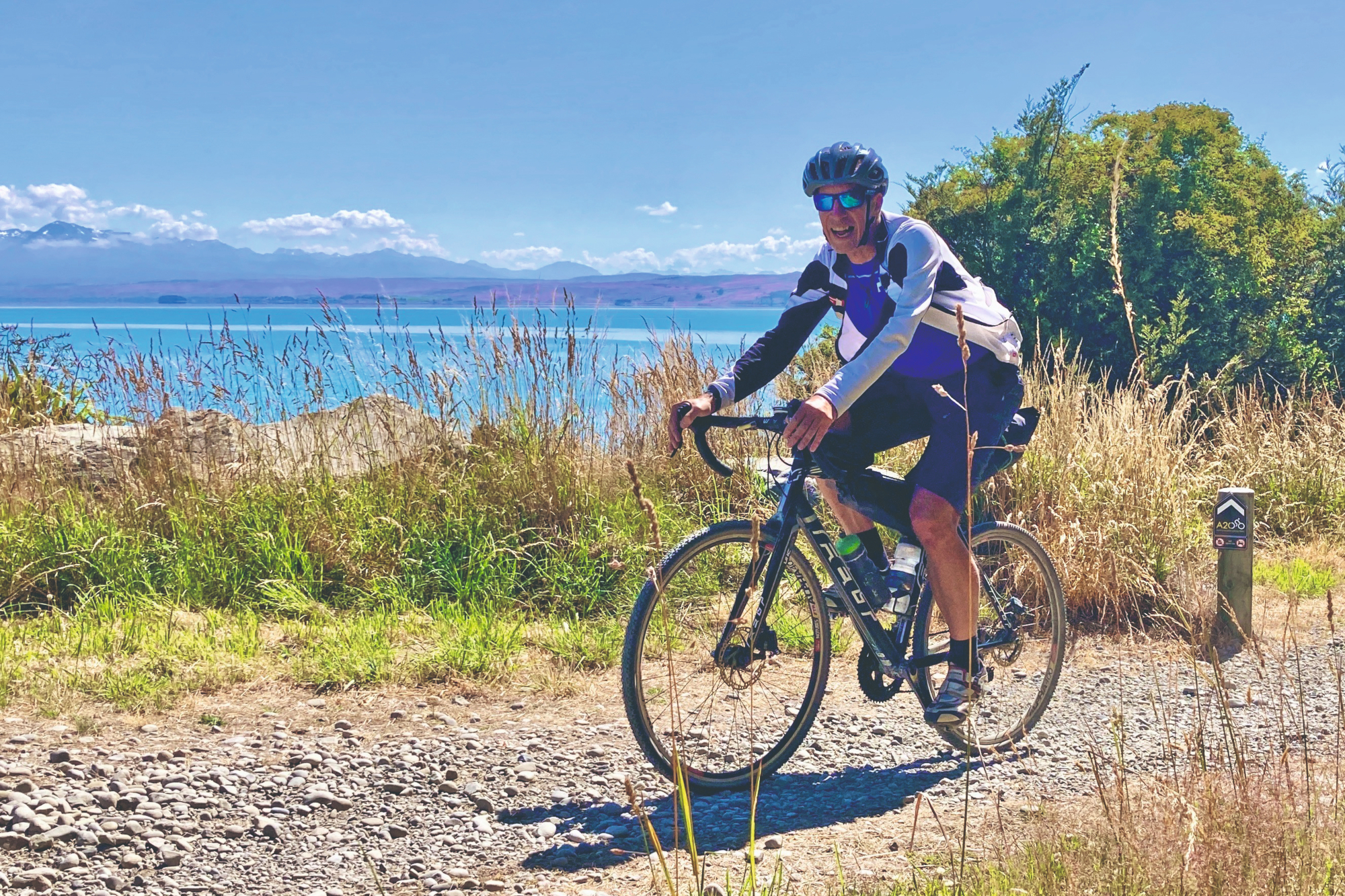
Biggest achievements: Winner of 17 British national titles, holder of 22 British records in various age groups from over-40s to over-60s. PBs include 19:11 for 10 miles and 48:00 for 25 miles.
At 64, Keith Ainsworth is 10 years older than Richard Oakes. The Yorkshireman dominated the masters TT scene for nearly 20 years, but last year he decided to stop racing altogether. Here, Ainsworth explains the mindset that led him to hang up his wheels while at the top of his game.
1. Do what you enjoy: “I enjoyed racing, finding out how fast I could go, and I made some great friends in the time trial community. But Covid lockdowns changed everything for me. I used to work for a big bank on a yearly contract basis, but when Covid struck they told me they were unsure about the future so there wouldn’t be a contract that year. I decided it was time to retire – I was in my early 60s and it was the right time. But retiring left me with a lot more time on my hands.
“Training for time trials, especially during the summer when you are really just fine-tuning, isn’t time consuming. I’d train for an hour, maybe 90 minutes a day, and that left me with time to fill. There was a lot I could fill it with, old interests like mountaineering and scuba diving, but those things don’t really work if you are trying to peak for a time trial.
“If you are working full-time, you look forward to training and to racing at the weekend, but I ended up twiddling my thumbs at home with too much time to think. The result was I started getting to races and thinking, am I really enjoying this? Is it worth giving up other things so I can do this? For me, it isn’t as if a time trial is fun in itself; it hurts, especially riding a time trial bike. I quickly found I was still giving it my all in a race, but I wasn’t enjoying it.”
Cycling opens up the world: “I decided to stop. I was still riding well; I won my last race, the 2022 National 25. Then straight after I drove to my mate’s in London, and I haven’t looked back. The big thing I’d missed was travelling. When I was racing, I only ever went to Mallorca and back to train, and there are so many other places I want to go, places I wanted to see.
“Funnily enough, Mallorca was the first place I went to after I stopped racing. I’ve got an apartment there, but for the first time I didn’t go for training. I just went there to ride the trails, going where I’d never ridden before – and it was amazing.
“I decided that that was what I wanted, to explore new places on my bike by doing road trips; driving then camping and exploring by bike. I tried Andalucia first, and. I loved it.
“My daughter lives in New Zealand and she was getting married last winter, so I’d planned to go anyway, but I went early and did a road trip around the whole south island. I’m in Mallorca now, but I did a road trip across France and Spain; driving, camping and cycling, to get here.”
Friendship really matters: “I’d lost touch with a lot of my friends outside cycling, and I’m a pretty sociable guy. I’m separated too, living on my own, so I didn’t have the stability of being in a relationship. I was free from work, then free from racing, so I needed to do something different. I’ve made contact with old friends, and made lots of new ones since I started travelling. It’s a different life – not better, just different. Anyway, what was I going to do, keep winning veteran time trials until I was 80?”
Anti-ageing expertise
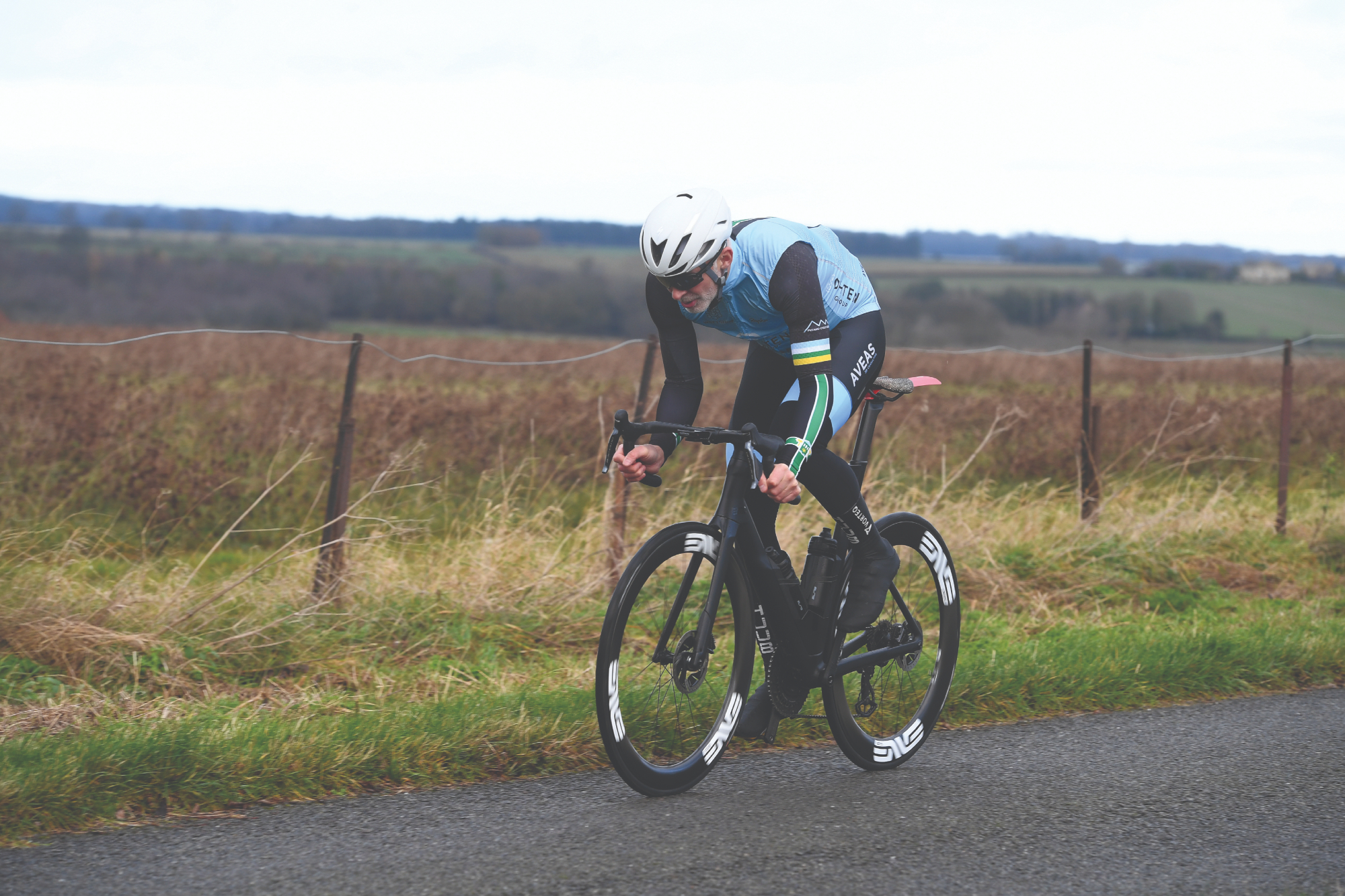
Professor Richard Davison, an exercise physiologist at the University of the West of Scotland, is a leading expert on the effects of ageing on cycling performance.
What do we know about how ageing affects cycling performance? You can’t hold back the clock – but you can partially hold it back. The amount of power you can produce will decline regardless of the amount of training you do, but ‘successful ageing’ means maximising the physiological potential for your age – there are huge differences in fitness between sedentary and trained older people.
How rapid is the decline? It is not a straight line. We’ve done research showing that the decline up until 40 is relatively small; it speeds up a bit between 40 and 50, then accelerates after 50, and arguably there is a further acceleration after 70. Longitudinal studies – following the same people over a period of time – have shown rates of decline of up to 14% per decade, so a ballpark figure of 1% per year is about right.
What causes this decline? The key cause is sarcopenia, the loss of muscle as an inevitable consequence of ageing. You can slow this down with regular strength training with weights at the gym, ideally two or three times a week – and lift heavy, targeting the lower rep ranges. As we get older, we tend to deposit a bit more fat internally and it becomes harder to maintain lean mass. Also, our research found that many older riders neglect high-intensity training, which is the one thing you shouldn’t do!
So older riders shouldn’t cut back on training? No, there is no particular reason to cut back. The rate of injury in cycling is very low – our sport is very kind on the body. Atrial fibrillation (AF) is a concern for older riders, but even for those with occasional episodes of AF, it may be possible to continue training and racing – subject to advice from a cardiologist.
Tell us about your research on pro rider longevity. I’ve studied Tour de France yellow jersey wearers going back to 1903, and on average these guys lived 20 years longer than the average for their cohort, i.e. males born in the same year in the same country etc. There are of course socioeconomic factors at play, but it adds to the evidence disproving the old theory that too much exercise shortens your life.
Over here we share tips on how to adjust your training and approach to stay fit as you age; cycling into your 40s, 50s and beyond. Plus, here we take a deeper look into how to tweak your cycling nutrition, when you're 40 and older.
This full version of this article was published in the print edition of Cycling Weekly. Subscribe online and get the magazine delivered direct to your door every week.
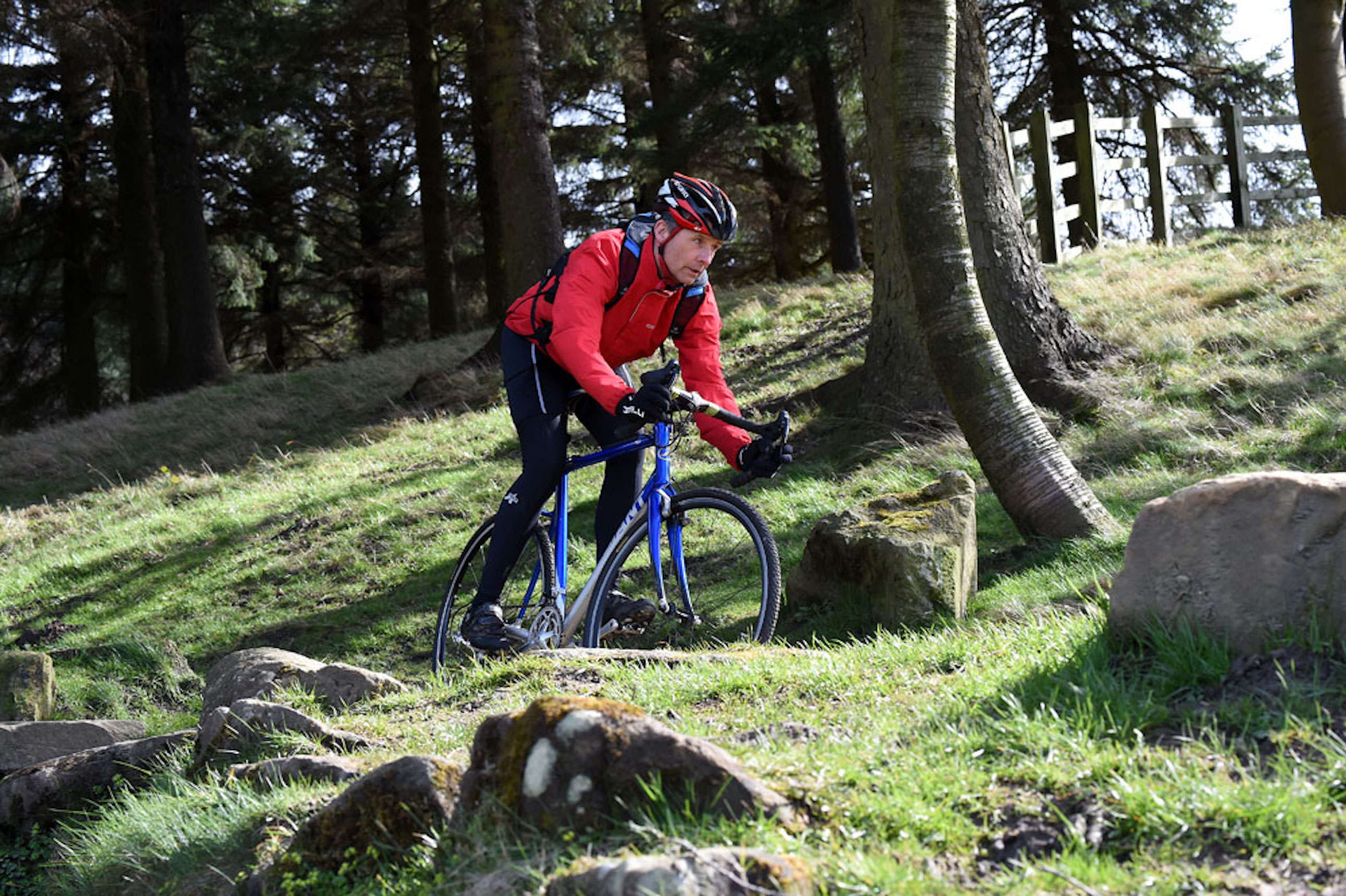
Chris has written thousands of articles for magazines, newspapers and websites throughout the world. He’s written 25 books about all aspects of cycling in multiple editions and translations into at least 25
different languages. He’s currently building his own publishing business with Cycling Legends Books, Cycling Legends Events, cyclinglegends.co.uk, and the Cycling Legends Podcast